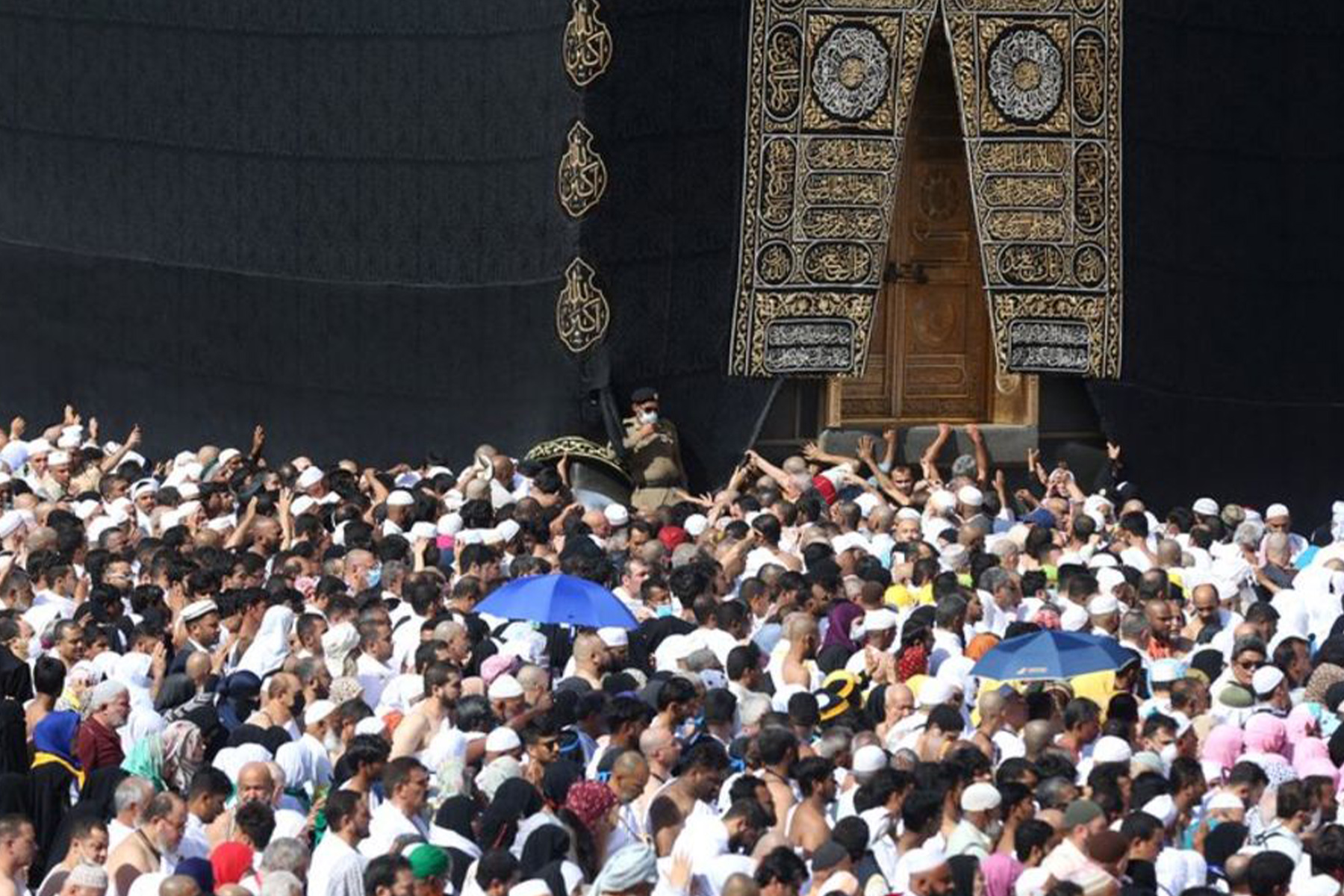Stephen Kalin and Alla Swilam as “‘Saudi Arabia Bars Pilgrims and Tourists Amid Coronavirus” for U.S News & World Report
A police officer wears a face mask to prevent contracting coronavirus, as Muslim pilgrims pray at Kaaba in the Grand mosque in the holy city of Mecca, Saudi Arabia February 27, 2020. REUTERS/Ganoo Essa
Saudi Arabia on Thursday closed its borders to foreign “umrah” pilgrims and to tourists from at least 25 countries where the new coronavirus has been found.
Muslims are currently applying for visas for the minor umrah pilgrimage, which can take place at any time of the year and brought 7.5 million people to the birthplace of Islam in the course of 2019, according to official figures.
Saudi Arabia and Qatar have not reported any cases of the new coronavirus, which has infected about 80,000 people worldwide and killed more than 2,800, mostly in China – but the other four Gulf Arab states have.
Kuwait and Bahrain raised their totals to 43 and 33 cases respectively, all in people who had visited Iran. Oman has diagnosed four cases and the United Arab Emirates, an air transit hub, raised its number of cases to 19 on Thursday.
Pilgrimage is big business for Saudi Arabia, which has Islam’s two holiest sites in Mecca and Medina, and is the backbone of plans to expand visitor numbers under Crown Prince Mohammed bin Salman’s ambitious economic reform agenda.
Visits by pilgrims accelerate during the holy fasting month of Ramadan, beginning this year in late April. And in late July, some 2 million pilgrims are expected for the week-long haj, the world’s largest annual gathering of Muslims, which has a separate visa regime.
In Indonesia, home to the world’s largest Muslim population, organizers said the suspension could affect 150,000-200,000 Indonesian pilgrims over the next month. Neighboring Malaysia advised citizens to postpone visits to Saudi Arabia.
“Protecting the pilgrims… and the sacred sites from the arrival of this disease is very important,” Health Ministry spokesman Mohammed Abdelali told reporters. “Saudi Arabia feels a sense of responsibility, therefore we took these temporary decisions, which will constantly be reviewed.”
RESTRICTIONS ACROSS THE GULF
Saudi Arabia, Kuwait, and the United Arab Emirates also halted the use of Gulf Cooperation Council cards for transit between the six member states, instead mandating passports, which can reveal more about previous travel.
But it was unclear which countries’ travelers would be affected by the Saudi ban, and whether they would be blocked on the basis of nationality or point of departure.
Saudi government spokesmen did not respond to requests for comment, and confusion grew throughout the day.
The UAE-based airlines Emirates and flydubai cited Saudi directives in saying they would no longer carry passengers with tourist visas from China, Japan, Italy, Iran, India, Pakistan and a number of other countries.
At Dubai airport, a Canadian citizen transiting from Iraq was barred from an Emirates flight despite none of those countries being listed on the airline’s website.
In Beirut, passengers without Saudi residency were prevented from flying to the kingdom.
Bahrain said it had halted flights to Iraq and Lebanon, and online images showed cleaners in protective overalls spraying disinfectant in empty halls in Manama airport.
Saudi Arabia’s benchmark stock index fell 1.1%, weighed down by tourism-related firms Jabal Omar Development, Seera Group, and Al Hokair Group.
Across the Gulf, Iran has the highest number of deaths from the virus outside China, reporting 26 deaths and 245 infections.
Several of Iran’s neighbors have closed their borders to travel from Iran.
The UAE suspended passenger ferry services with Iran until further notice, the state news agency WAM said. It also obliged all arriving commercial ships to provide a statement on the health of their crews 72 hours before arrival.
The government also told parents to inform schools if children or close relatives had traveled in the past four weeks to one of several Asian countries, Italy or Iran.
The UAE said it had identified six new coronavirus cases – four Iranians, one Chinese and one Bahraini, state news agency WAM said.














